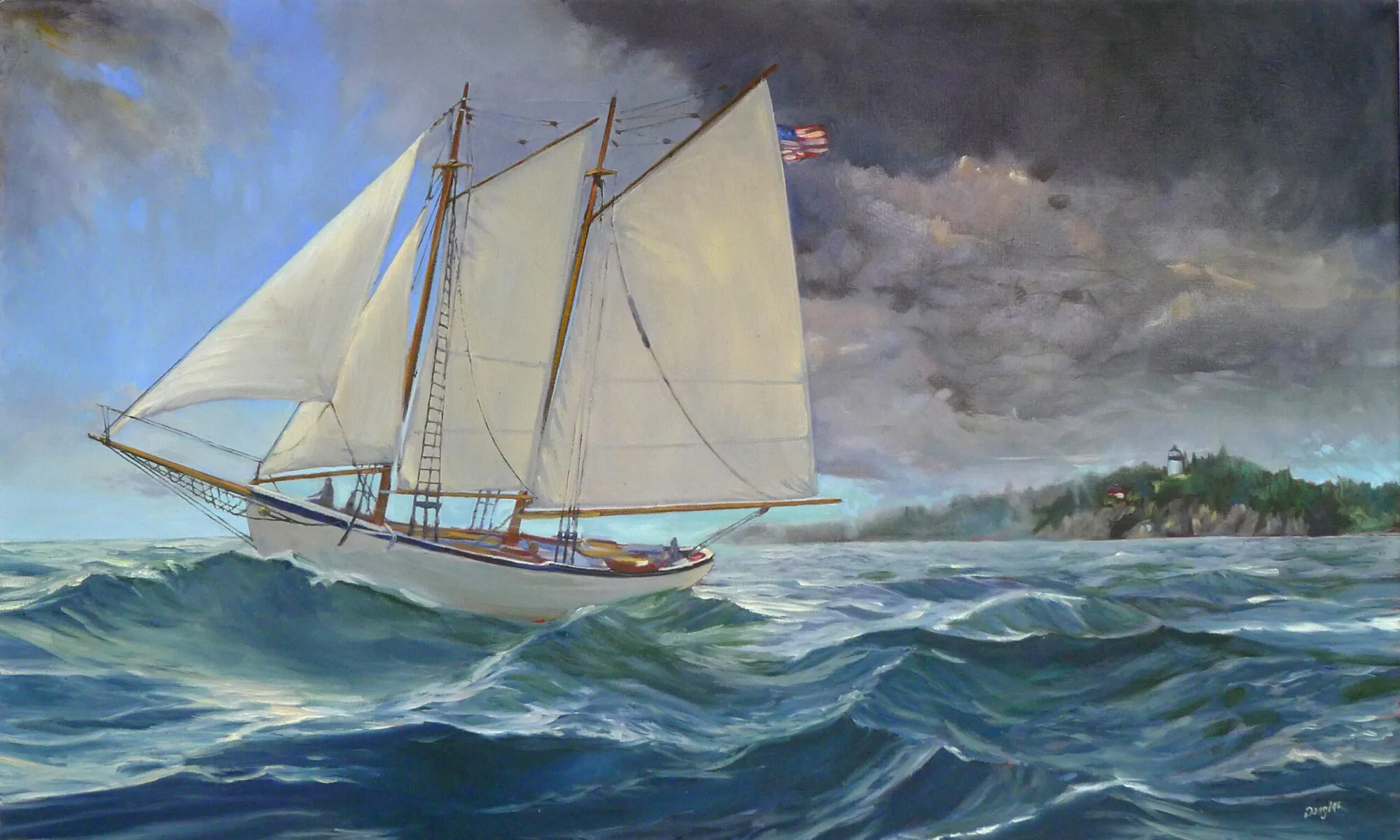Even if you have no interest in selling, you should still be showing.
 |
| More work than they bargained for, by Carol L. Douglas |
For those painters who want to make sales, exhibitions are a no-brainer. Gone are the days (if they ever existed) when the world would beat a path to your door for a better mousetrap. If you want your work to be seen, it has to be where it can be found.
There are other artists who paint for love, not money. It’s still important for them to show their work. Art is essentially a form of communication. That can be as personal as a private gift between two people, or as general as a landscape. A painting should say something. For that to be complete, it needs an audience.
 |
| Monhegan schoolhouse, by Carol L. Douglas |
I first started showing when I’d built up an inventory of work and didn’t know what to do with it. They were modestly priced works. When they sold, they enabled me to buy more paint and create more paintings. I imagine the need for shelf space and materials has motivated many painters to go from amateur status to professional.
Every group show is in some way a competition. Your work stands next to others, so it can be judged as part of a group, on formal or intuitive standards. This makes you think about ways you can improve.
 |
| Fish Beach, by Carol L. Douglas |
There is one pitfall in local shows, and that’s local groupthink. If you’re a Luministpainting in a community of Impressionists, you’re going to feel pressure to conform to the prevailing ethos. If you find yourself in this position, start showing outside your geographical pool; that’s a great way to find your own tribe.
Still, that’s the exception. Viewers often have incisive observations on our work. We ponder them and take them back to our studio. Over time and many shows, our body of work starts to take on aspects of dialogue, rather than being a strict monologue. (That’s also the great advantage of classes and workshops.)
 |
| Jonathan submarining, by Carol L. Douglas |
Showing is a great way to build confidence. In my experience, the viewing public is overwhelmingly kind. Regularly participating in art shows helps you develop a sense of perspective about your own work. Yes, it’s important and wonderful, but it’s also part of a panoply of work being done by other artists. It’s great when you realize you have a place in this wonderful parade of images. That shatters ‘imposter syndrome’.
Many of my close friendships were developed at art shows. That’s important in a career where you spend lots of time working alone.
Everything I’ve said about real world exhibitions pertains equally to social media. Getting your work out there, and reacting and responding to other’s work is the goal. Art always looks best in person, but social media has a longer reach. If you don’t use Instagram and Facebook, you should start.
